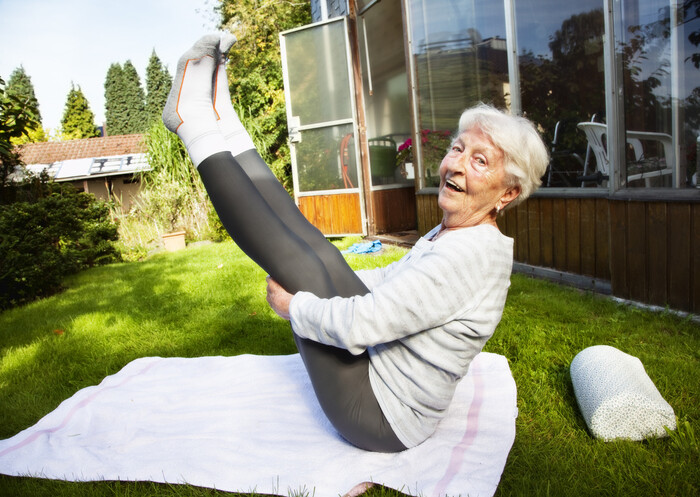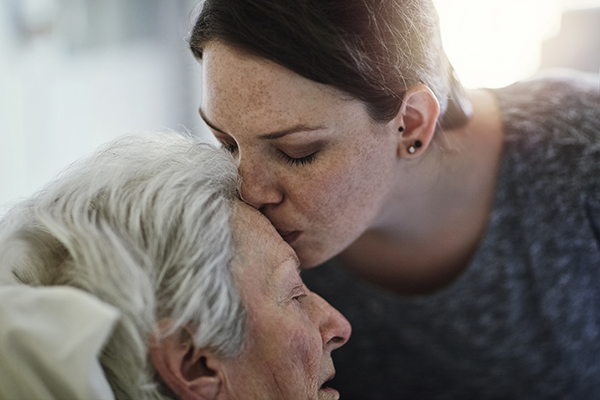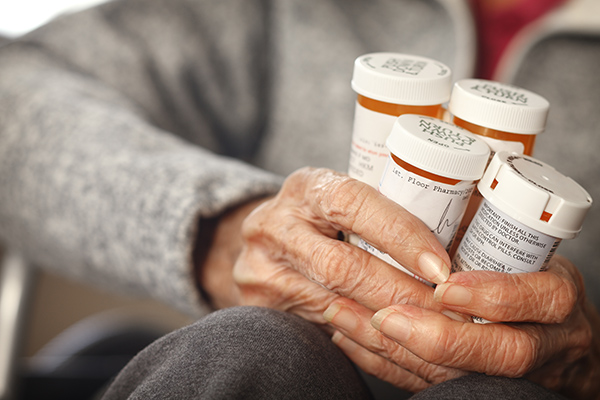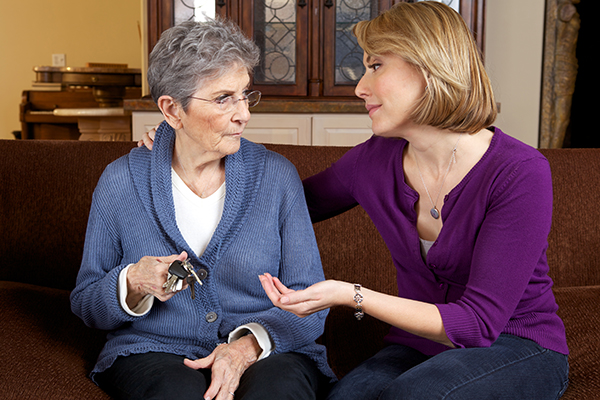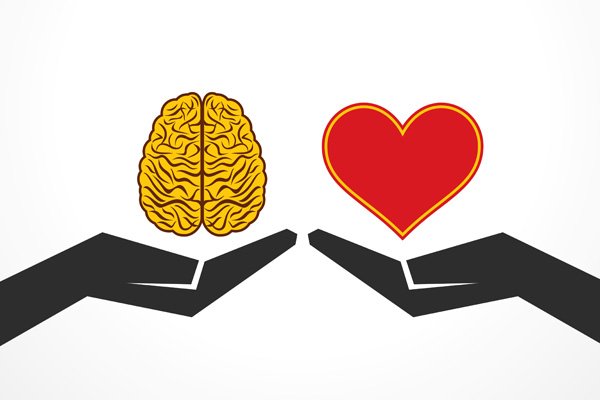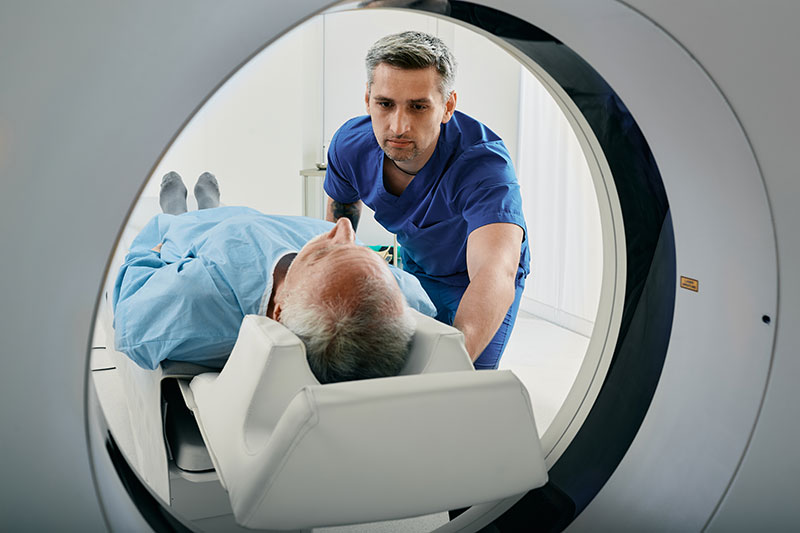Alzheimer’s
Dementia Exercise Suggestions for Each Stage of the Disease
Try these dementia exercise recommendations for each stage of the disease.
The many advantages of staying physically active are clear, but what is not as well known is that exercise can be extremely beneficial for those with Alzheimer’s disease, for a number of reasons: reducing the risk for muscle weakness and other issues that stem from inactivity, easing the effects of psychological and behavioral challenges, and much more.
As with anyone considering starting a new exercise routine, the doctor should first be consulted. Then, try these dementia exercise suggestions, utilizing the following strategies per each person’s individual abilities and the appropriate stage of the disease:
Early Stages
Older adults in the initial stages of Alzheimer’s disease can often still fully enjoy active and social exercises like walking, dancing, bowling, golf, and swimming, even though some degree of … Read More »
Accepting a Chronic Disease Diagnosis Is Beneficial for Seniors and Their Family Members
Facing a chronic disease diagnosis head-on does not mean giving up.
In Isaac Asimov’s opinion, “The easiest way to solve a problem is to deny it exists.” It’s a standard feeling for many family caregivers when their loved one is faced with a chronic disease diagnosis, such as dementia. Even though this can instill some measure of comfort in thinking that life can carry on like it always has, if only we don’t acknowledge this new reality, the truth is that acknowledgement is extremely important in order to get the necessary support.
It is understandable for a family member to wish to deliver all of the care a senior loved one needs. Nevertheless, frequently in the crux of denial are feelings of guilt, helplessness, and in some cases incompetence in the ability to “fix things.” And you will … Read More »
Queens and Aces!
Wow… GREAT turnout at today’s Marin Senior Fair!
Stop by booth 186 to say hello to Blake and Carrie!
Come on Queens and Aces… BLACKJACK!
What to Do When a Senior Is Unaware of Dementia Behaviors
Anosognosia for dementia patients, or the unawareness of dementia behaviors, can be challenging.
“How could you think that I have dementia? There’s not a single thing wrong with me!”
If a loved one with dementia expresses feelings like this, you might be thinking that he or she is simply in denial and unwilling to accept such a difficult diagnosis. Yet, there might be another reason: anosognosia, when a person is truly unaware that he or she is impaired by dementia.
Finding the most effective way to respond to a senior who is unfamiliar with his or her own dementia behaviors is a challenge. As the professional providers of the best elderly care Pleasanton and the surrounding area have to offer, we’ve compiled some tips to help family caregivers better manage care for someone with anosognosia:
Understand that the older … Read More »
Tips for Navigating a Dementia Diagnosis
Find tips to help when a loved one receives a dementia diagnosis.
In some cases, the best lessons in life come about from going through them firsthand; yet the knowledge we are able to glean from those who have walked a similar path before us is priceless. If you are providing care for a senior who has been given a dementia diagnosis, and you’re becoming a bit stressed in this uncharted territory, the recommendations below can help:
A brief break often makes a big difference. Whenever your senior loved one is struggling with challenging feelings, such as fear or anger, it is advisable to stop whatever activity or task she is involved with, and allow time for a breather. Change the situation by moving into a different room or outside if the weather allows, play some favorite music, browse … Read More »
Senior Living Experts Share Benefits of Dementia Care at Home
Learn why dementia care at home may be best from the senior living team at Hired Hands Homecare.
Although an incredible number of older adults are dealing with the challenges of Alzheimer’s disease, an even greater number of family members are trying to cope with caring for them. Incredibly, nearly 75% of family caregivers are managing their older loved ones’ dementia care needs by themselves, with only 26% seeking professional care services.
Of course, families want to do all they possibly can to satisfy their loved ones’ needs, but dementia caregiving can lead to an extremely high level of both mental and physical stress. This takes a toll on the caregivers’ own overall health over time, particularly once the disease progresses. And some family members think there is an all-or-nothing strategy: either manage their loved one’s needs at … Read More »
Dealing with Dementia: The Two Top Treatment Options
When dealing with dementia, one of these two treatment options may be recommended.
The most recent Alzheimer’s statistics are worrying. The condition has become the 6th leading cause of death, overtaking both breast cancer and prostate cancer combined. And though deaths from several chronic conditions, including cardiovascular disease, are declining, those from Alzheimer’s have escalated more than 100%. The toll the condition takes on family caregivers with a loved one who is dealing with dementia is similarly shocking, with well over 16 million Americans supplying over 18 billion hours of caregiving for a loved one with Alzheimer’s.
Although we have yet to realize a cure for Alzheimer’s disease, there are two distinct forms of treatment options that can help alleviate some of the more prevalent symptoms. If your parent is diagnosed with Alzheimer’s, the following are two options … Read More »
Senior Driving: When Should a Senior Should Give up the Car Keys?
Learn why giving up the car keys can lead to social and physical decline.
It’s one of the most difficult decisions we face as we grow older, and a highly sensitive issue for adult children to broach with their senior parents: unsafe driving, and the need to explore giving up the car keys. Driving a car, while offering a great sense of freedom and independence, can become risky due to a number of variables. And giving up that independence in order to remain safe can feel defeating.
On the other side of the equation, we need to take into account the latest research findings that show that giving up driving can lead to both mental and physical decline. Giving up driving, can lead to health decline through isolation, despondency, and reduced physical activity.
The study, as shared in … Read More »
Home Care Expert Tips: When a Senior Resists Home Care Services
Find tips for seniors who resist home care services.
Getting used to the reality that a senior you love needs help at home can be challenging. Even more difficult is talking about home care services with the senior and encouraging him or her to acknowledge that assistance is needed. If you have viewed changes in your loved one and you sense the need to initiate speaking about home care as a possibility to improve safety and independence in the home, try some of these conversation starters from the home care team at Hired Hands Homecare to raise the subject in a subtle, non-confrontational way.
If heightened frailty is growing to be a concern:
“I love you, Dad, and now that you’re living by yourself, I’m concerned about your safety. I know someone who can help us to make … Read More »
How a Healthy Heart Can Help You Avoid Alzheimer’s
Can caring for your heart help prevent Alzheimer’s? Learn more in Hired Hands Homecare’s article.
Taking good care of your heart can help you avoid Alzheimer’s disease, according to the latest scientific research. It turns out that things that are good for your heart – like regular exercise and a healthy diet – are also good for your brain.
There are many ways a heart-healthy lifestyle contributes to a better brain. Regular exercise increases blood flow to the brain, while a healthy weight reduces inflammation that can contribute to Alzheimer’s and other forms of dementia.
Risk factors for developing Alzheimer’s disease include high cholesterol, high blood pressure and obesity. The same risk factors also contribute to the development of heart disease.
LDL or “bad” cholesterol could harm the brain by promoting the buildup of plaques that lead to Alzheimer’s disease. Higher “good” … Read More »


